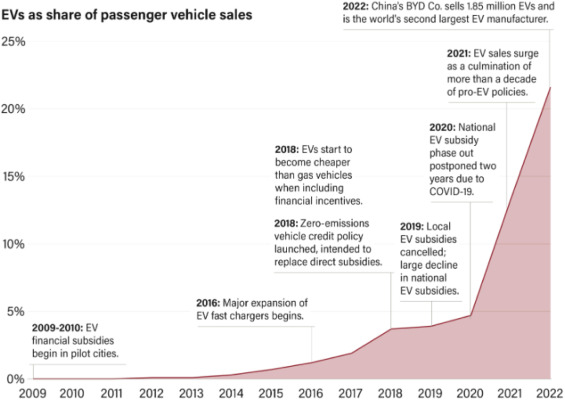

**Punjab Government Unveils Plan for 240 Electric Buses in the Province**
In a pivotal step towards sustainable urban mobility, the Punjab government has unveiled plans to deploy 240 electric buses throughout the province. This endeavor forms part of a wider strategy aimed at modernizing public transportation, minimizing carbon emissions, and addressing the increasing issues of air pollution in metropolitan areas.
**Aim and Vision**
The main aim of this initiative is to offer an environmentally friendly alternative to traditional diesel-fueled public transport. By rolling out electric buses, the government intends to lessen the transportation sector’s carbon footprint, which significantly contributes to air pollution in the area. This action is in line with Punjab’s dedication to environmental sustainability and its ambition to be at the forefront of green transport solutions.
**Execution Strategy**
The rollout of the 240 electric buses will occur in phases, with the initial batch slated to take to the roads by year-end. These buses will primarily operate in major urban centers, such as Lahore, Faisalabad, and Rawalpindi, where the need for public transportation is greatest. The government has partnered with top electric vehicle manufacturers to ensure that the buses incorporate cutting-edge technology, guaranteeing efficiency and dependability.
**Infrastructure Enhancement**
To facilitate the operation of electric buses, the government is also channeling investments into the required infrastructure. This encompasses the establishment of charging stations at key locations throughout the province. The charging infrastructure will be developed collaboratively with private sector stakeholders, ensuring it is resilient and capable of handling the expanding fleet of electric vehicles.
**Economic and Ecological Advantages**
The launch of electric buses is anticipated to yield several advantages. From an economic standpoint, it will diminish reliance on imported fuel, thereby conserving foreign exchange and stabilizing the local economy. Environmentally, the transition to electric buses will dramatically lower emissions, fostering cleaner air and promoting a healthier populace. Moreover, the quieter operation of electric buses will help mitigate noise pollution in urban locales.
**Obstacles and Remedies**
Although the rollout of electric buses offers numerous benefits, it also presents specific challenges. The upfront cost of electric buses exceeds that of traditional buses, and questions arise regarding the sufficiency of charging infrastructure. To tackle these challenges, the Punjab government is considering subsidies and incentives for electric vehicle manufacturers and operators. Furthermore, efforts are underway to ensure that the charging infrastructure is adaptable and capable of meeting future demands.
**Public Response and Future Outlook**
The public response to this announcement has been predominantly favorable, with many citizens expressing their support for the government’s proactive stance on environmental matters. The successful execution of this project could set the stage for broader expansion of electric public transport in other regions of Pakistan. Looking forward, the Punjab government is also considering the incorporation of smart technologies, such as real-time tracking and automated fare collection, to enhance the overall effectiveness and user experience of the public transport system.
In summary, the introduction of 240 electric buses signifies a major leap forward in Punjab’s journey toward sustainable urban transportation. By adopting clean energy solutions, the province is establishing a model for other regions to emulate, proving that economic development and environmental stewardship can coexist harmoniously.






